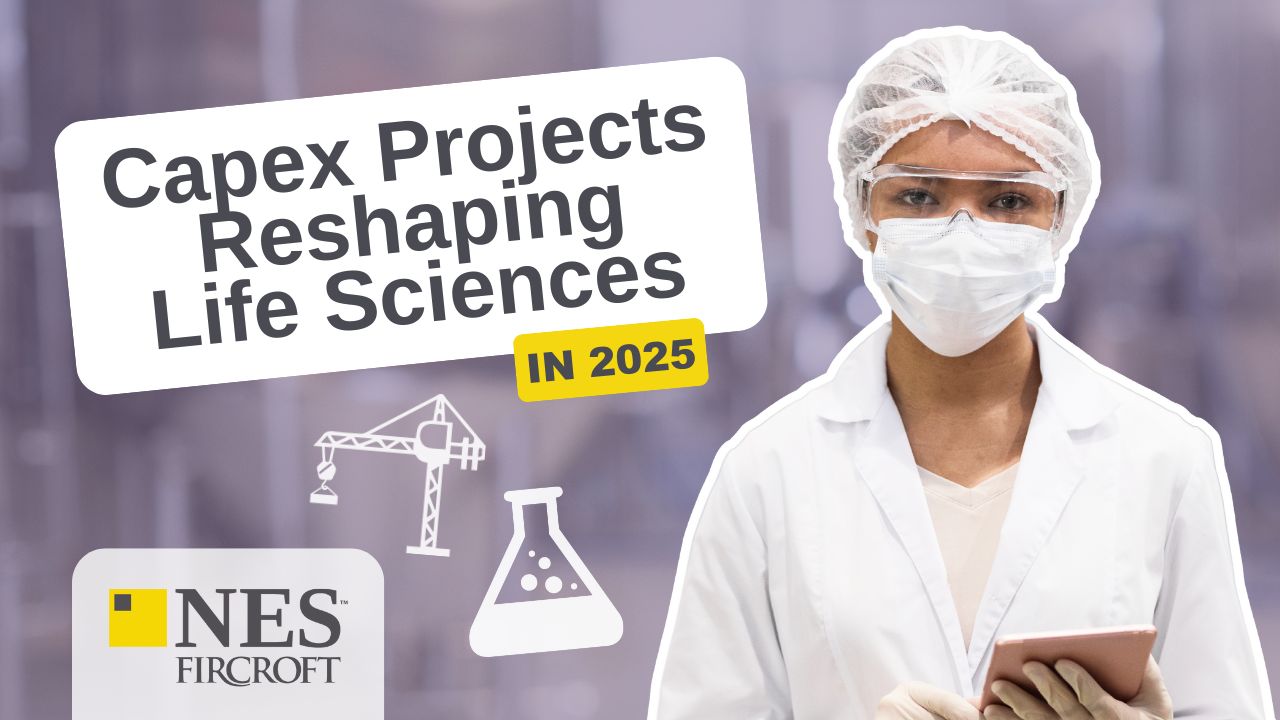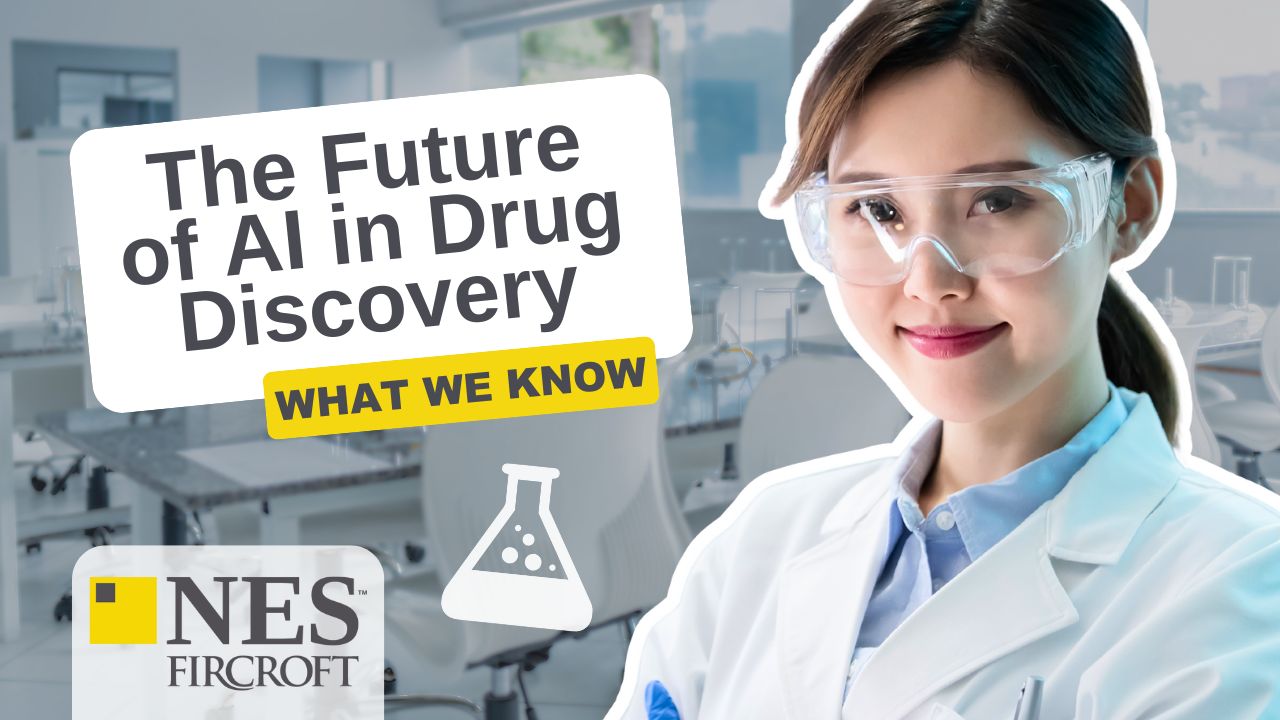Crafting a stand-out CV: Tips for landing your dream job in the pharmaceutical industry
21 Mar, 20238:50The pharmaceutical sector has been in a period of rapid growth and change after the pandemi...

The pharmaceutical sector has been in a period of rapid growth and change after the pandemic changed how the industry needed to work. Suddenly, the world’s pharmaceutical companies were required to work collaboratively at a scale and pace never seen before.
This has been the
catalyst for a range of innovations in the industry recently. Big data and AI
drive research and development, while telemedicine and wearable technology open
new possibilities within clinical trials. And businesses are turning to their
experts to improve their sustainability and ERG policies in the face of wider
public and government scrutiny.
Companies are looking to recruit the best talent to their
product cycle to drive this change, and the opportunities for suitable
candidates are plentiful. The first step is a great CV, but what does that look
like, and how can you maximise your chances for an interview for these highly
specialised opportunities?
What do Pharmaceutical Companies look for in a CV?
We spoke to Kyle Greenwood, Life Sciences recruitment consultant
for NES Fircroft on his tips for creating an attention-grabbing CV:
What’s it like in recruitment in the Life Sciences
industry now? Are there particular regions where the industry is particularly
active?
Busy, for sure! Life Sciences is a particularly volatile
industry globally as it’s at the forefront of technological development,
constantly trying to better the world.
Whether it be the approach to research with new Devices,
Medicines, or Diagnostic instruments, or industrial development, with the
implementation of Industry 4.0 Manufacturing techniques and facilities,
which is even more complex due to the ever-increasing number of regulations
involved, there’s always something new happening in Life Sciences.
We are seeing considerable, consistent growth in the regions
I cover (the UK & Ireland) and the rest of the European teams. Ireland
Particularly, since Brexit, has become a hotbed for Life Sciences Manufacturing
facilities, expanding from its “traditional” industries (Aerospace, Food &
Beverages, Food Production)
What are the opportunities for careers in the life
science industry?
Life Sciences is growing and will continue to grow globally.
Healthcare is becoming more accessible for all, and a growing, ageing
population means more people to take care of!
What sort of jobs are you currently recruiting for?
I tend to deal with our more niche specialist positions in
the region – I love the challenge of a tough-to-fill position, especially when
you find the gem you’ve been looking for!
Examples:
- Senior Manager, Digital Technology & Innovation
- Manufacturing Automation Systems Manager
- Senior EHS Specialist
- Senior BMS Engineer
- Senior Project Engineer (HVAC & Utilities)
Where do you see the industry going in the next couple of
years?
The industry will continue to grow and move closer to AI,
Robotics & Mechatronics as the 5th wave of the industrial revolution looms.
Life Sciences will become more intelligent, more bespoke, safer, and more
efficient for the customer.
In the most recent budget, the UK government pledged to
invest £3.5bn in the next ten years in Biotechnological advancements. The UK
aims to be at the forefront of innovative science and technology development.
Areas of focus include Glasgow, Greater Manchester, and West Midlands.
What advice would you give a candidate looking to enter
the industry right now?
Get in, learn, and get paid! In an industry that is
continuously growing and becoming more specialised, the number of opportunities
available to develop will continue to grow, as well as your salary! Alongside
this, it does make it easier to sleep at night knowing that you’re contributing
to the accessibility, innovation, and development of life-changing (and
life-saving) technology, products & services.
What tips would you give a candidate on their CV?
- Keep it concise, three pages maximum.
- Make sure to include the right technical keywords
- Keep it factual throughout
- Tailor your CV to each application – quality over
quantity!
Key components of a successful CV for the Life Science industry
When crafting your CV, there are several key components that
you should include. These include your personal information, education, work
experience, skills, and achievements.
Personal Information
Your personal information should include your full name,
address, phone number, and email address. Consider adding your LinkedIn
profile, too, if it shows your networking skills and connections, published
content, or courses you’ve taken on the platform.
Education
Your education section should include your study
qualifications, starting with the most recent.
Work Experience
Your work experience section should include your job title,
company name, dates of employment, and a brief description of your responsibilities
and achievements in each position. Use the employer’s job description as a
guide, and tailor your description to match the essential and desirable skills
and knowledge of the job. Be sure to focus on achievements, for example, where
your work contributed to a study completed under budget, on time, or with
better results than expected.
Skills
Your skills section should include any relevant skills that
you possess, such as laboratory skills, computer skills, or language
proficiency. Be honest about your skills and provide examples of how you have
demonstrated them. ‘Soft’ skills such as communication, teamwork, and
flexibility have become more important to employers since the pandemic, so look
for opportunities to showcase these skills as well.
Achievements
Your achievements section should highlight any awards,
publications, or presentations that you have received or given. Showcase your
accomplishments and demonstrate how you have contributed to the field.
Tailoring your CV to the Life Science industry
A CV should never be generic. While crafting a CV
specifically for a role can take longer, it matches your CV more closely to the
job description, increasing your chances of landing an interview. This means
highlighting your experience and education in the field and showcasing any
specialised skills or certifications you possess.
The most important way to do this is to include relevant
keywords and phrases throughout your CV. This will help your CV be picked up by
applicant tracking systems (ATS) and demonstrate to the hiring manager that you
have the necessary qualifications for the job. Include any placements, work
experience programmes or volunteer projects you’ve worked on in the industry. This
experience is valuable to a potential employer and will help you stand out.
For example, if you have experience working in a laboratory,
highlight this experience and provide specific examples of the skills and
techniques you have developed. If you have a degree in a life science field, showcase
your coursework and any research projects you have completed.
It’s a good idea to start with a single master document
detailing your skills and experience, so you don’t miss valuable information.
This will also make creating a tailored CV much quicker. But never send this
document to employers; always use it as a foundation for a bespoke CV for each
role.
Formatting and organising your CV
ATS systems, as mentioned previously, will scan a CV for
relevant keywords. If a CV is poorly formatted or in a file type that is
difficult to read, the system will reject the CV – and you will lose your
opportunity to progress before a recruiter has even seen your skills and
experience. Use a clear font like Arial, ensure your formatting and headers are
consistent, and your CV is saved in a compatible format for the job.
Keep your CV concise and to the point. Avoid using filler
words or unnecessary information. Use action verbs to describe your
responsibilities and achievements, and quantify your accomplishments whenever
possible. Keep your CV to two pages maximum – hopefully, you’ll get an
interview, and this is where you’ll have the opportunity to elaborate.
Common mistakes to avoid when crafting your CV
There are several common mistakes that candidates make when crafting
their CVs. These include:
- Spelling
and grammatical errors
- Including
irrelevant information
- Focusing
too much on responsibilities and not enough on achievements
- Using
a generic CV for every job application
- Using
a difficult-to-read font or format
To avoid these mistakes, proofread your CV several times and
ask a friend or colleague to review it. There are also online services that can
help you write a great CV and provide proofing services.
Resources for improving your CV writing skills
If you are struggling with crafting a successful CV, several
resources are available to help you. These include:
- Online
templates and examples
- Workshops
or courses on CV writing
- Career
counselling services
- Professional
CV writers
Using these resources can help you to improve your CV
writing skills and to create a stand-out CV that will impress potential
employers.
How NES Fircroft can support your Life Sciences job search
Crafting a stand-out CV is crucial to securing an interview.
By highlighting your relevant experience and education, tailoring your CV to
the life science industry, and formatting it in a clean and easy-to-read
manner, you can impress potential employers and stand out from the competition.
Avoid common mistakes, use resources to improve your CV writing skills, and tailor your application to each job. With these tips and guidelines, you can create a successful job application that will help you land your dream pharmaceutical job.
NES Fircroft has supported the Life Science market for over
20 years, sourcing personnel for engineering, scientific and commercial roles.
We can provide permanent and contract candidates to the Life
Science industry across the Quality, Clinical, Regulatory/Compliance, and
Engineering disciplines.
Are you looking to take your Life Sciences career to the
next level? Browse our Life Science vacancies today.









